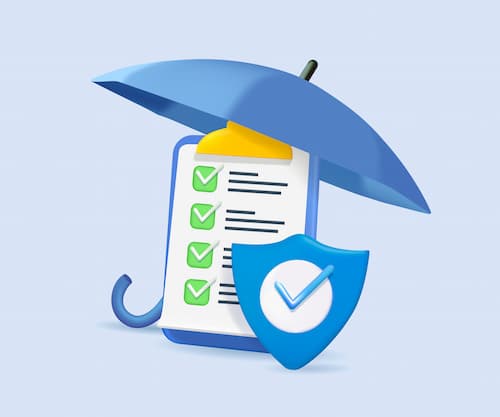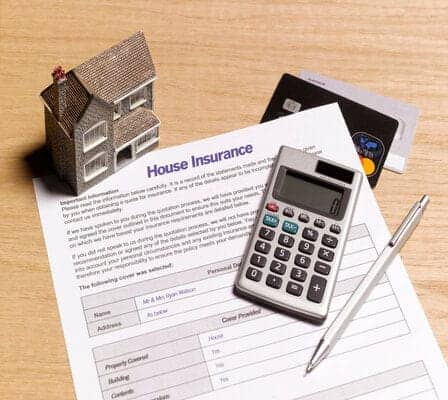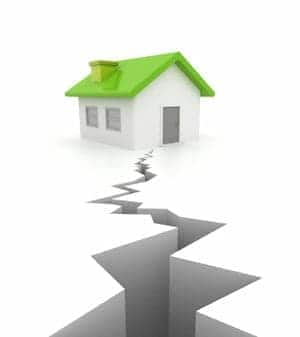The best ways to save on home insurance
There’s no trick to getting cheaper home insurance. It simply requires a little research and time to find the best price.
Below are the top ways to get cheaper home insurance, some of which can save you money immediately.
Shop around and compare quotes
Getting quotes from as many companies as possible to compare rates is the best way to find the cheapest policy. It’s important to look beyond the big-name insurance companies, as smaller, local companies may surprise you with low rates.
Compare home insurance estimates from at least three to five companies, but remember that the more quotes you get, the better your odds of finding a lower price.
Update and upgrade your house
Consider some home improvements to lower insurance rates. Investing some money into upgrades to your house that make it less likely to be damaged, whether from fire, storms or burglary, earns you insurance discounts. Insurance companies like to see a home that is well-maintained and shows that the owner has put effort into preventing a claim.
Upgrades like a hail-resistant roof, storm shutters, fire-resistant construction materials and security systems can all get you cheaper insurance rates. As a bonus, they’ll also improve your property value.
Increase your deductible
Increasing your home insurance deductible means an instant decrease in your premiums. Because you’re telling the insurance company you’ll cover a bigger portion of any future claim (and you won’t make smaller claims since the deductible makes them not worthwhile), the company will give you a cheaper rate.
You do need to make sure you can pay the deductible if you need to, but putting aside the insurance premium savings is an easy way to make sure you have it.
Ask about discounts
The upgrade discounts are just a few of the homeowners insurance discount options. Ensure you ask your insurance company and any insurance company from which you request quotes.
Not all companies offer the same discounts, and the discount amount will also vary, so it’s always worth asking. Discounts can save you as much as 40% on your home insurance.
Review your policy annually
Make sure you take the time to review your policy when it renews. Check for any coverage that’s inaccurate or any factors affecting your rates that may not be accurate. Are all of your discounts there? Are you paying for extra coverage you don’t need or could do without?
One caveat: a proper review of your policy should include making sure that the replacement cost of your home is accurate. If the cost to replace your home has gone up, whether due to upgrades or inflation, your home insurance rates will also increase. However, it’s vital to have an accurate reconstruction cost to avoid being underinsured, so don’t skip it. Never reduce your dwelling coverage to save money.
Bundle your home and auto insurance
One of the biggest discounts insurance companies offer is the home and auto bundle discount. Not only will bundling lower your home insurance rates, but it will also reduce your car insurance rates. And you can bundle other policies as well.
“One of the best discounts homeowners can use to save on their home insurance is to bundle other insurance products such as auto insurance, motorcycle, business, etc. By bundling multiple policies together, insurance providers often give discounts on each policy, sometimes upward [of] 30%,” says Lauren Mckenzie, senior agent at A Plus Insurance in North Carolina.
Bundling is an easy way to save, but it isn’t always the best deal. Compare buying separately with bundle prices to find what works best for you.
Don’t file small claims
Small claims are generally not worth the trouble once you pay your deductible, but they can cost you much more than that one flat fee. Filing claims can cause your insurance rates to go up, often more than what the claim payout you got was worth.
Insurance companies see people who file many small claims as a higher risk; you’re likely to keep filing claims. Home insurance covers a lot of things, some of them small, but its main purpose is to protect you from damage that you can’t recover from financially on your own. Those smaller things listed as covered are generally there to be included as part of a larger claim. Save filing claims for major damage to keep your rates low.
Maintain a good credit score
In all but a handful of states, credit scores can be used when calculating rates. It may not seem related, but statistics show that people with better credit file fewer claims.
As a result, in most places, your credit score can have a really big impact on what you pay for home insurance. Working to maintain a good score or improve it can save you a lot of money on insurance.
Saving on home insurance: The bottom line
As costs rise and severe weather increases, home insurance rate increases are inevitable. Finding a lower rate takes a little effort and some forethought. Home buyers will need to consider the average home insurance rates in the areas where they want to buy and perhaps reconsider location based on risk and costs.
“Particularly hard hit are ZIP codes that have been impacted by wildfires, hurricanes, derechos, etc.,” Bach says.
It remains possible to get lower rates, even amid a widely publicized home insurance crisis. Undoubtedly, shopping around to compare quotes is the first and best step to finding a lower rate and is well worth the time and effort involved.
Home insurance FAQs
Can you negotiate home insurance rates?
No. The state regulates insurance rates, approving them and preventing increases that haven’t been approved. That means you can’t negotiate a better price, but you can ask about discounts and comparison shop for a better rate elsewhere.
What are three things that make home insurance go up?
Many things can make home insurance go up, but three major home insurance factors are filing claims, increases in the cost of construction materials and increased risk of severe weather.
What should I do if I can’t afford my homeowners insurance?
If you’ve tried to find a lower rate but still can’t afford your home insurance, contact your state’s FAIR plan or insurer of last resort. These plans are designed to help people who can’t get home insurance or can’t find an affordable rate on the open market.







